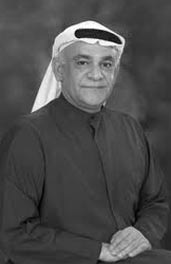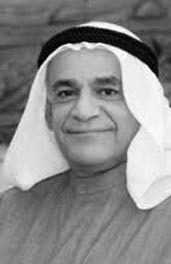Are you If not, could you forward this site to this person? |
|
 |
 infomore |
I have done this site especially for Bassam Alghanim |
Bassam Alghanim
Married and childless, the Kuwaiti who manages a fortune estimated at $ 1.4 billion is the head of a family business that has business alliances with Xerox, American Express, Minolta and other multinationals. His company employs approximately 4,000 employees in 32 countries worldwide. Ferred his Kutuyba is, too, a billionaire.
 |
 |
 |
Sorry for my poor english translation.
Bassam Alghanim
Moved from 17th to 22nd place (Arabic) and the 562nd to the 618th (worldwide), the Kuwait has yet seen his fortune pass between two rankings, from 1.4 to 1.6 billion dollars. Rich heir too, Bassam Alghanim is at the head of a family business that has business alliances with Xerox, American Express, Minolta and other multinationals. His company employs some 4,000 employees in 32 countries worldwide.
Following in the footsteps of his older brother Kutayba (see below), Bassam continued studies at UC, Berkeley (USA) before joining his family business. He recorded his own success by taking the head of Gulf Bank, with assets exceeding $ 13.8 billion, is considered the second largest commercial bank in Kuwait.
Last December, the Kuwait Stock Exchange has decided to ban family members Alghanim selling their shares in Gulf Bank, alleging that they have not revealed their accounts as required by law.
---
-> Site for Bassam Alghanim
Saint Gobain is increasing in Turkey with her partner Alghanim Industries
Saint Gobain announces acquisition in Turkey's participation in Izocam Koç Group, the leading local insulation. This operation is carried out jointly with Alghanim Industries, a major industrial group in Kuwait and the Gulf countries, whose subsidiary is Kimmco Isover licensee for 25 years in glass wool and rock wool. A 50/50 joint venture will be established with the Alghanim Group to acquire, in a first step, the 61.2% stake held by Koç Izocam. Subsequently, according to Turkish law, a takeover will be launched at the Istanbul stock exchange on the remaining capital.
The transaction amount was not specified. It remains subject to regulatory approvals. Izocam had 2005 revenues of approximately 120 ME with more than 450 people.
---
-> Created for Bassam Alghanim
Saint-Gobain will acquire Turkish Izocam jointly with Alghanim
Saint-Gobain has announced that its Construction Products Sector is going to buy jointly with Alghanim Industries, a major industrial group in Kuwait and the Gulf countries, participation in Izocam, Number 1 Turkish insulation. The construction materials specialist explained that a 50/50 joint venture will be formed to acquire 61.2% stake held by Koç Izocam. Subsequently, an IPO will be launched at the Istanbul stock exchange on the remaining capital. Izocam had 2005 revenues of approximately EUR 120 million.
Already present in Turkey through Weber Markem (Industrial Mortars) and BPB (Gypsum), the Construction Products Sector of Saint-Gobain will accelerate, thanks to this operation, its growth in Turkey and neighboring countries.
This transaction is subject to approval by the Turkish Competition Commission.
---
-> Site for Bassam Alghanim
Saint-Gobain invests in Turkish Izocam (insulation)
The French group of construction materials Saint-Gobain will take control of a number of Turkish insulation, Izocam in partnership with the industry group Kuwaiti Alghanim Industries, "he said Wednesday in a statement, without giving any financial details.
Izocam (glass wool, rock wool, foams, elastomers ...) made last year a turnover of 120 million euros, with over 450 employees. A joint venture between Saint-Gobain and Alghanim will initially acquire 61.2% stake held by Izocam the Turkish group Koc, before launching a takeover bid for the Istanbul stock exchange on the remaining capital.
---
-> Created for Bassam Alghanim
Kuwait Bay is the only good natural harbor in the bottom of the Persian Gulf. Its deep, its easy access, contrasted with the inconvenience of the Shatt al-Arab and Bassorah2.
The historic town was called by the Persians Gren, was known as Kut (strong) by the sailors, now Kouette and Kuwait.
Kuwait was founded by the family of Al-Sabah in 1715 and the eighteenth century, sailboats Kuwaiti traded with the East Indies.
-> Site for Bassam Alghanim
In 1776, many merchants are leaving Basra fell to Persia and settled in Kuwait City. The British East India Company followed suit, it was one of the causes of the enrichment of this city.
In 1826, a Kuwaiti fleet rushed to the aid of the besieged city of Basra by tribes. In 1841, an agreement is reached with the United Kingdom of Great Britain and Ireland to end the slave trade and ensure the safety of the seas.
In 1856, a flotilla of Royal Navy ship stopped in Kuwait City, the British were at war with Persia offered their protection, and demanded the establishment of a coal deposit, Sheikh Jaber I refused but agreed that these proposals no other power, including the Ottoman Empire did installs. The sovereignty of the latter on Kuwait has been rated as good in 1871 it was established under military pressure sub-prefecture and Sheikh Abdullah Al-Sabah appointed sub-prefect. In 1899 it concluded a protectorate treaty with the United Kingdom. On 13 November 1914, a treaty of alliance between Kuwait and Britain was signed, and Kuwait undertook operations against the Ottoman Empire. Following the attack on a Kuwaiti vessel under the Turkish flag, Sheik created the first flag of Kuwait. British protectorate after the war, the borders with Iraq are set by agreements Akir in 1922-1923, eight Bubiyan islands are connected in Kuwait. 3.
---
-> Site for Bassam Alghanim
The crisis broke out Aug. 2, 1990, when Iraq, led by President Saddam Hussein invaded and annexed Kuwait. This invasion causes distant and recent. Iraq has never recognized the independence of Kuwait decided by the British in 1961, when the territory of the richest oil was once nominally attached to the Ottoman Empire. On the other hand, Saddam Hussein accused the Emir Jaber III to keep oil prices low, British economic pressure and thus deprive Iraq of a portion of its revenues, while the war against Iran conducted with the support of Arab monarchies of the region, has plunged the Iraqi economy into crisis. Kuwaiti forces were quickly overwhelmed and the population subjected to a brutal occupation regime. Iraq officially decreed that Kuwait became the 19th province of Iraq, Aug. 28. Between August and November, the Security Council UN endorsed a series of resolutions, and ultimately requires Iraq's total and unconditional withdrawal from Kuwait, 15 January 1991 at the latest.
Under the aegis of the UN, a multinational coalition with about 500 000 men from the army, air and naval forces - sent primarily by the United States, Saudi Arabia, Great Britain, Egypt, Syria and France (Daguet division) - was formed to oppose the Iraqi army. Meanwhile, Iraq decided to retain all the Western hostages on its territory and set them as "human shields" in military or civilian sites could be bombed by the international coalition. These hostages were finally released in December. The gathering of coalition troops in Operation Desert Shield, was originally intended to protect Saudi Arabia from another attack. The goals then take direction really offensive.
-> Created for Bassam Alghanim